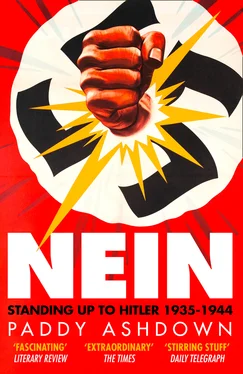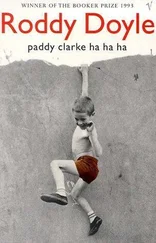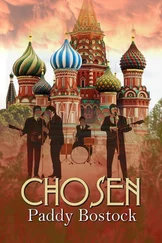The Gestapo may not have been aware of Kleist-Schmenzin’s travel plans. But London was.
On the day before his departure, the appeasement-supporting British ambassador to Berlin, Sir Nevile Henderson, sent a coded telegram to Whitehall reporting that Kleist-Schmenzin would be travelling to the British capital claiming to represent the ‘moderates of the German Staff’. Henderson advised: ‘It would be unwise for [him] to be seen in official quarters.’
What the ambassador did not know was that he was already too late to block the secret visitor’s access to senior officials in London.
Two days before his departure Kleist-Schmenzin had asked for a meeting with the Central European correspondent of London’s News Chronicle , the well-informed and well-connected Ian Colvin. It was not their first encounter. Three months previously the two men had met in Berlin’s fashionable Casino Club. Colvin would write of that meeting: ‘For the first time, I heard spoken in a whisper the name of the man who was protecting them [the resistance] and furthering their efforts: the name of Canaris.’ During their earlier discussion Kleist-Schmenzin had asked Colvin’s advice about how to reach senior British politicians, explaining that Canaris was looking for a means to make direct high-level contact with them, but did not want to go through the normal intelligence channels. ‘I must warn you against the British Secret Service for several reasons,’ Canaris had said. ‘Should you work for them it will most probably be brought to my notice, as I think I have penetrated here and there. They will want to send messages about you in cipher and from time to time we can break a cipher. Your names would appear in files and registers. That is bad too. It would be difficult to overlook such activities in the long run. It has also been my experience that the British Secret Service will reward you badly – if it is a matter of money, let me tell you, they do not reward services well, and if they have the least suspicion, they will not hesitate to betray you to me or to my colleagues of [Himmler’s] Reich Security Service.’
This time, Colvin’s meeting with von Kleist-Schmenzin took place not in a well-known Berlin club, but in a dimly-lit backstreet bar in Bendlerstrasse, close to army headquarters. The German had something important to say ‘in a few short sentences, any one of which would have been enough to send him to instant execution’. Kleist-Schmenzin informed Colvin of the purpose of his forthcoming visit to the British capital: ‘The Admiral [Canaris] wants someone to go to London … We have an offer to make to the British and a warning to give them.’ That night Colvin wrote from the Adlon Hotel to his fellow journalist and friend, Winston Churchill’s son Randolph: ‘A friend of mine will be staying at the Park Lane Hotel from the 18th to the 23rd. I think it essential he should meet your father. Please put nothing about him in your column or mention him to any of your colleagues. The visitor will have information of great interest to your father.’
On his arrival at Croydon Aerodrome, Kleist-Schmenzin was observed to board a coach for London, where he booked into the Park Lane Hotel. The following afternoon the German visitor, describing himself as ‘a conservative, a Prussian and a Christian’, met Sir Robert Vansittart for tea – ‘[But not] I need hardly add … at the Foreign Office,’ Vansittart was careful to explain in his subsequent report.
The Foreign Office mandarin was impressed with Kleist-Schmenzin: ‘He spoke with the utmost frankness and sincerity … [He] has come out of Germany with a rope around his neck, staking his last chance of life on preventing [the war],’ he reported, adding: ‘Of all the Germans I saw, Kleist had the stuff in him for a revolution against Hitler.’
Over tea, Kleist-Schmenzin told Vansittart that war was now ‘a complete certainty’ unless Britain acted. ‘Hitler has made up his mind … the mine is to be exploded [after 27 September] … All [the generals] … without exception … are dead against the war. But they will not have the power to stop it unless they get encouragement from outside. We are no longer in danger of war, but in the presence of the certainty of it … [But if Britain acted to defend Czechoslovakia] it would be the prelude to the end of the [Hitler] regime. [His army friends were unanimous] … they had taken the risk and he had taken the risk of coming out of Germany at this crucial moment … but they alone could do nothing [if Britain did nothing].’
The following day, 19 August, Kleist-Schmenzin was driven south through the ripening fields and orchards of Kent to Chartwell House, where Winston Churchill, out of government, was struggling to catch up on a missed deadline for his magnum opus, A History of the English-Speaking Peoples . The two met that afternoon in the room Churchill had set aside for important visitors. It was a space that would have been very familiar to a Prussian with an ancient lineage, with its heavy dark-oak carved furniture and Gothic-style beamed ceiling hung with a banner bearing the Churchill coat of arms. In one corner, where the sunlight streamed through a south-facing latticed window, was a table cluttered with family photographs. Close by, two comfortable chairs were drawn up in front of an Elizabethan fireplace. Churchill’s son Randolph sat to one side on an upright chair, taking notes in shorthand.
‘Kleist started by saying that he thought an attack on Czechoslovakia was imminent and was most likely to occur … [before] the end of September,’ Randolph scribbled. ‘The generals are for peace … and … if only they could receive a little encouragement they might refuse to march … Particularly was it necessary to do all that was possible to encourage the generals who alone had the power to stop war … In the event of the generals deciding to insist on peace, there would be a new system of government within forty-eight hours … [which would] end the fear of war.’
Winston Churchill understood very well what Kleist-Schmenzin was telling him. He would later write: ‘There can be no doubt of the existence of a plot … and of serious measures taken to make it effective.’
Kleist-Schmenzin seems to have asked Churchill for a personal assurance he could take to Ludwig Beck in Berlin that Britain would act militarily if Hitler attacked Czechoslovakia, for at one point Churchill broke off the conversation to ring Halifax. The foreign secretary agreed the outlines of a letter which Churchill could secretly send to Kleist-Schmenzin in the near future, to ‘re-assure his friends’ that Britain would defend the Czechs.
Travelling back to London through the failing light of an English summer’s evening, with Churchill’s promise ringing in his ears, Ewald von Kleist-Schmenzin must have felt that his dangerous trip had been worth it – he had what Beck and his friends in Germany had asked him to get: a clear commitment that London would act if Hitler moved against Czechoslovakia. Now they could get on with planning the coup to remove the dictator and prevent the coming war.
The next day, Churchill sent the record of his meeting to prime minister Chamberlain, foreign secretary Halifax, Halifax’s predecessor Anthony Eden, and shortly afterwards to the French prime minister, Édouard Daladier.
Chamberlain was again dismissive. In a note to Halifax he wrote that Kleist-Schmenzin and his friends ‘remind me of the Jacobites at the Court of France in King William’s time and I think we must discount a good deal of what he says’. But a double negative in the last sentence of the prime minister’s minute seems to betray some uncertainty: ‘Nevertheless I confess to some feeling of uneasiness and I don’t feel sure that we ought not to do something … Inform [Sir Nevile] Henderson … and tell him … to make some warning gesture.’
Читать дальше












